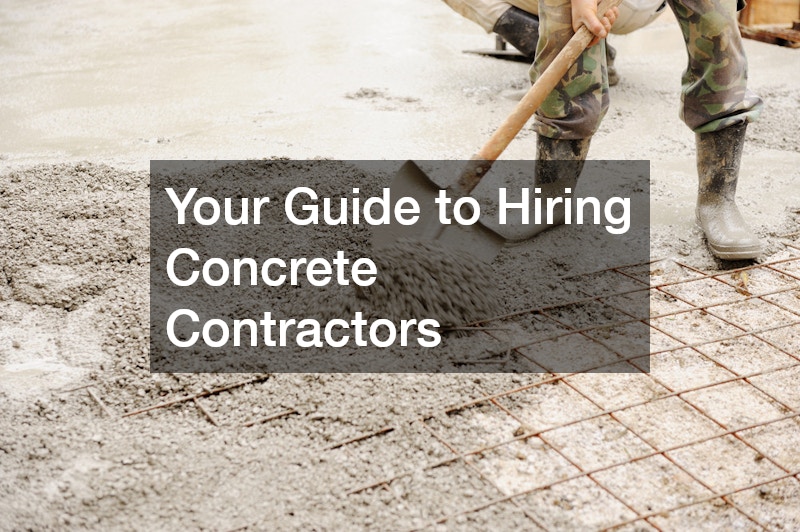
In this article, we will explore the essential aspects of hiring concrete contractors, helping you make informed">
In this article, we will explore the essential aspects of hiring concrete contractors, helping you make informed decisions for your projects.
When searching for a concrete contractor, one of the first aspects to consider is their experience in the industry. A contractor with significant experience is likely to have developed essential skills that can affect the quality of work delivered.
Video Source
Checking their portfolio of previous projects can also give insights into their capability and style, which may align with your project needs.
Another critical quality to look for is reliability. A reliable contractor will communicate effectively, adhere to deadlines, and provide a clear timeline for your project. Reputation in the industry can be a strong indicator of this reliability; thus, consulting online reviews and testimonials from previous clients can be quite revealing.
Finally, ensure that the contractor is knowledgeable about the latest concrete techniques and materials. Innovations in the field can significantly influence the durability and appearance of the finished product. Ask potential contractors about the techniques they prefer to use and how they stay updated with industry advancements.
Verifying the credentials of a concrete contractor is essential to ensure you are hiring a qualified professional. Start by checking if they possess the necessary licenses required in your region to perform concrete work. Each state or locality may have different licensing requirements, so verify that the contractor complies with these regulations.
Insurance is another critical aspect to verify. A reputable contractor should have both liability insurance and worker's compensation insurance. Liability insurance protects you from any damages that may occur during the work, while worker's compensation covers any injuries that employees may sustain while on your property, safeguarding you from potential lawsuits.
Past work also plays a significant role in verifying a concrete contractor's credentials. Request references from previous clients and, if possible, visit completed projects. This firsthand experience can provide valuable insight into the contractor’s workmanship, reliability, and overall client satisfaction.
Before hiring a concrete contractor, asking the right questions can clarify expectations and ensure you choose the best fit for your project. Start with questions about their experience—how long they have been in business and whether they specialize in the specific type of concrete work you require. This helps gauge their expertise and ability to handle your project effectively.
Inquire about their availability and scheduling. Understanding when they can start and how long they expect the project to take is critical for planning your timelines. A good contractor will provide a clear project timeline and keep you informed of any potential delays or changes.
Furthermore, discuss the materials they plan to use and whether they offer any warranties on their work. Knowing the quality of materials can give you confidence in the longevity of the concrete features you are investing in. A solid warranty can also provide peace of mind, knowing that the contractor will address any issues after the project is completed.
The pricing of concrete contractors can vary widely depending on several factors. Firstly, the complexity of the project plays a crucial role; intricate designs or specialized finishes will generally cost more than basic concrete work. Understanding what affects pricing can help you budget accordingly for your project.
Location is another significant factor that influences contractor rates. In urban areas or regions with a higher cost of living, you may find that contractors charge more compared to rural settings. It's also advisable to gather quotes from multiple contractors to compare prices and services offered.
Average costs for concrete work can range from $3 to $10 per square foot, depending on the factors mentioned above. Some contractors may also charge additional fees for permits or materials, so it’s essential to clarify these aspects upfront to avoid surprises during the project. Understanding these components will empower you to make a more informed financial decision.
By following these guidelines, you can hire a qualified concrete contractor who meets your project needs and budget. Taking the time to research, ask questions, and verify credentials will secure you a reliable professional for your concrete work. Making informed decisions is crucial to ensure the success of your projects.
